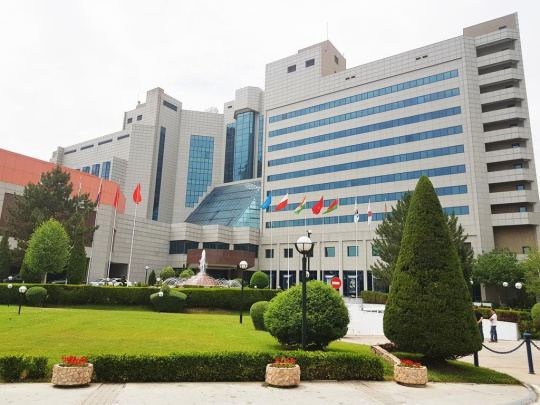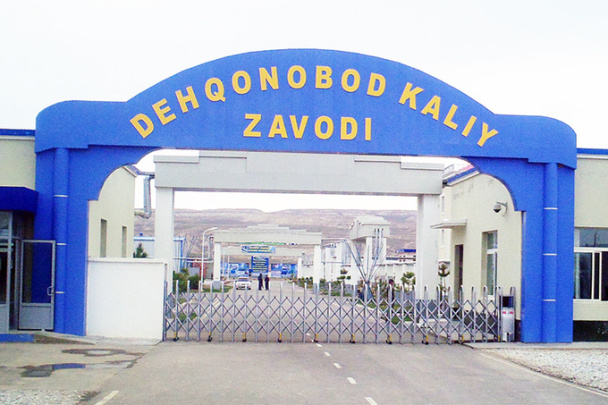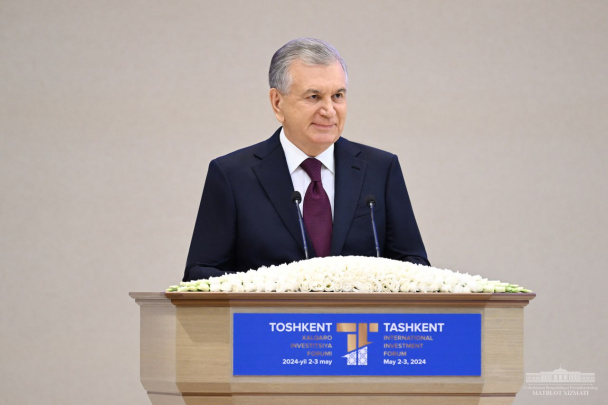A new wave of privatization is underway in Uzbekistan. By the end of 2025, state-owned enterprises should decrease by 75%. In this process, a number of large enterprises are being handed over to private hands without any competition. Offshore companies own more than a hundred oil and gas fields and cement plants, which control half of the market.

In recent years, the necessity of privatization of state-owned enterprises has been emphasized many times. Because they are inefficient, very costly to society, and have a negative impact on economic growth. It is aimed to reduce the number of state-owned enterprises in Uzbekistan by 75% between 2021 and 2025. But recently, a controversial aspect at the center of this topic has been the lack of trust in sales transparency.
Why is privatization necessary?
The purpose of privatization is to transfer state assets to the owners at the highest prices. Naturally, the more valuable the property is, the more effectively the owner will use it to get back the money he invested.
A high level of state participation in the economy hinders competition, increases monopoly and corruption.
Privatization of state-owned enterprises with low management efficiency and operating only at a loss is primarily important for the budget. Reduces costs, which allows budget money to be spent on other more important things.
Also, the expropriation and privatization of property is an integral part of the market economy, a means of more effective use of state property, limiting state intervention in the economy, and expanding the share of the private sector.
For example, UzAuto Motors cannot fully satisfy the existing demand in the domestic market, and buyers have various questions about the price and quality of the cars they produce. At the same time, there seems to be no limit to the number, duration and variety of benefits granted to the company. Instead, if private companies increase in the country, competition will increase and quality will improve, as well as tax revenues for the state budget will increase.
Selling hospitals – what kind of privatization is it?
One of the main goals of privatization is to increase efficiency. These elements are very important in making the process fair and transparent. But the subjective “Uzbek” privatization that is being implemented in the country today raises a number of questions. That is, relying on the subjective opinion and intelligence of bureaucrats, enterprises are selected and sold.
One of the saddest examples of this is the sale of the buildings of the Republican Oncology Center and its branches in Tashkent city and Tashkent region. The total area of these three hospitals, located in the crowded areas of Tashkent, is 17 hectares. The auction for all three objects will be held on the same day – December 12. Oncology hospitals will be moved to a single complex under construction on the outskirts of the city. It is said that the complex being built in Almazor district will be put into operation in May next year. 600 billion soums have been allocated for its construction. This means more than $53 million. The construction company that received such a large state order is certainly not a stranger: Mimar Group, which has been receiving state orders worth billions of soums for construction in Tashkent in recent years, without a tender.
Both the transfer of hospitals and entrusting the construction of oncology complex to Mimar Group are taking place based on the government’s closed decisions.
“Kizilkumcement” case. Dubious privatization may have failed in the end
We can also consider several other cases where the privatization of state property was carried out subjectively in Uzbekistan. Civil servants determined that a certain property would be given to a specific company, and the public was not even informed about other potential buyers.
For example, a year ago, 86.92% of the state’s share in the authorized capital of “Kizilkumcement” was sold to United Cement Group (an offshore company registered in Cyprus) for 1.89 trillion soums. After that, the manager of Fusion Wealth Management Ltd., Michael McGoffey, expressed his opinion on the privatization of “Kizilkumcement” on his Linkedin page, criticizing the fact that this process was not carried out in a transparent manner.
“At the end of 2021, 6,500 soums were offered for each share of the plant, but the price was set at 4,859 soums. It’s 20% cheaper than the market price and it doesn’t make sense.
Because the opportunity to run a firm is very expensive, such transactions occur at values that are much higher than current prices. But it was the other way round with “Kizilkumcement”. The buying firm acquired the plant at a significant discount to market value,” the investor’s representative wrote, adding that the sale was a surprise to other investors he spoke with.
During the past period, there may have been some other changes in the ownership of “Kizilkumcement”. As of November 29, 64.1% share of the plant belongs to shareholders, 35.9% share belongs to the state (last year it was announced that 86.92% state share was privatized). Kun.uz contacted the information service of the State Asset Management Agency and asked: “Has the contract with United Cement Group been canceled and renewed?”
According to UzSAMA information service, in the terms of the contract, it was agreed that the buyer will pay the contract value in installments within the framework of the current legislation.
In this case, United Cement Group is being transferred a share in proportion to the payment made according to the schedule established within the contract.
Also, a large share of other 2 large cement plants “Kuvasoycement” and “Bekobodcement” are owned by the companies “Raybirid limited”, “Rayblock limited” and “Rayeross limited” registered in Cyprus at the same address as United Cement Group.
“The transfer of three cement plants controlling half of the market to one company is a factor that harms the competitive environment in the country. In addition, it creates the ground for further transactions on the ownership of cement plants to be carried out outside Uzbekistan,” economist Otabek Bakirov wrote.
How did they transfer more than a hundred mines to a private company?
There is another category of “privatization”, in which the second party is officially called a “foreign investor”, but in reality it goes back to Uzbeks who opened companies offshore.
Usually, the applicants for the assets being privatized are clearly stated. In the case of a competition, the public will be informed about the competition, and in the case of an auction, the community will be informed about the auction before the start of the process. Conditions will be clarified. But it is still unclear how more than a hundred oil and gas fields fell into the hands of the private company “Industrial energy group” in the last two years.
According to the official information of May 2022, the company owns 103 mines in Uzbekistan with the right to use the underground. About 80% of the country’s oil production and approximately 22% of the proven gas reserves are accounted for by Saneg (the company’s new name after the rebranding).
Uzbek officials have not disclosed how such large assets, which previously belonged to the state company Uzbekneftegaz, passed into the hands of a private company. The possibility that these mines were given away for free has not been denied either.
This process dates back to Jizzakh Petroleum, which was established in 2017. At that time, 60% of the new joint venture belonged to Uzbekneftegaz, and 40% indirectly to Gazprom. These two founders wanted to build an oil refinery in Jizzakh. After this project failed, 98% of the enterprise was gradually transferred to Belvor Holding in 2020-2021. Accordingly, the name of Jizzakh Petroleum was changed to “Industrial energy group”.
Belvor Holding is also registered in Cyprus and belongs to the Uzbek businessman Bakhtiyor Fozilov. Fozilov also owns Eriell Oilfield Services, a major drilling contractor in Uzbekistan.
In addition to oil and gas extraction, Saneg also produces gasoline, diesel, oil, aviation kerosene. In the spring of this year, the Fergana Oil Refinery was also sold to this company.
Has Talimarjon TPP been sold or not?
There are also many questions about the privatization of thermal power plants or their trust management. On September 9 of this year, the Ministry of Investments signed an agreement with Mubadala and TAQA companies of the United Arab Emirates to establish a joint venture to manage the Talimarjon TPP and to give 80% of the station’s share to these companies. It is still unclear whether this large asset of the state, which made a net profit of 1.1 trillion soums last year, will be privatized or placed under trust management.
Earlier, two more of the large heat stations – Yangi Angren TPP and Angren TPP – were transferred to the trust management of Central Asia Energy LLC. This company is owned by Gornie Raboti, registered in Kazakhstan. It is still unclear what formal and informal commitments existed between the two. However, according to the State Assets Management Agency, Angren TPP ended 2021 with a financial loss of 87.6 billion soums, Angren Thermal Energy Enterprise SUE – with 68.3 billion soums.
If privatization is not transparent, more assets will be sold for less cost
The sale of 75% of the state’s share in Uzcard for 210 billion soums also caused some objections. When the state wants to privatize this company, shouldn’t it be converted from LLC to JSC to sell it at a higher price, thus bypassing the exclusive right of private shareholders with 25% stake?
The acquisition of 100% state share of the Hyatt Regency Tashkent hotel in Tashkent by the Abu Dhabi Uzbek Investment fund for $87 million was perceived differently on social networks. The hotel was built between 2013 and 2016, and the project cost was approximately $205 million.
Privatization cases that do not occur in a transparent and open market lead to a decrease in productive investments. Public doubts about the results of privatization arise, as a result, investors who receive state objects do not invest enough, because they understand very well that their rights to the property are doubtful.
A bad reputation prevents potential investors from participating in trades and investing in Uzbekistan. This limits healthy competition. The result could be the sale of public assets at low prices to “our own investors” with various benefits.
“There is a high risk of the emergence of an oligarchy in Uzbekistan”
According to the WB report, by 2025, the risk of taking power in Uzbekistan by individuals seeking their own interests rather than the interests of society may reach a peak.
Based on the experience of the post-Soviet countries, international experts conclude that the process of privatization of land and state-owned enterprises plays a key role in increasing the influence of oligarchs.
According to the latest conclusions of the IMF mission following the visit to Uzbekistan, the new law on privatization should help the privatization process to be transparent and competitive. In particular, it is necessary to improve the governance system by strengthening the requirements regarding the beneficiary, which envisages the reduction of conflicts of interest in large construction and infrastructure projects.
In general, the main goal of privatization processes in Uzbekistan is to give state-owned property to the most efficient organizations and people at the highest possible prices. It should be transparent and based on the principles of competition. Public participation is definitely needed in this. But there are no positive aspects to say about it.




